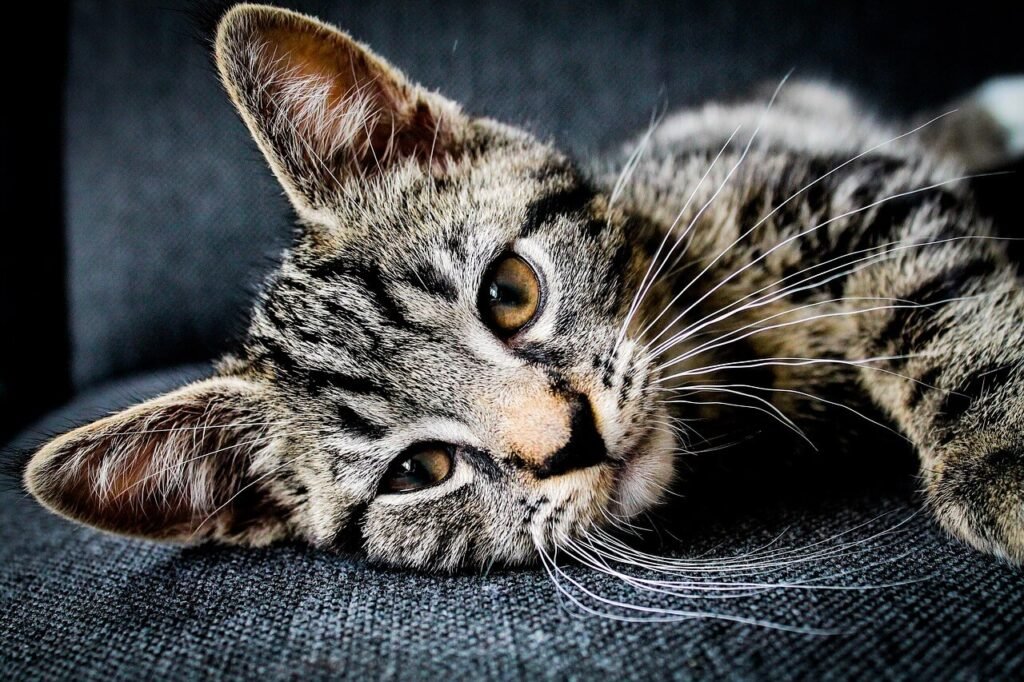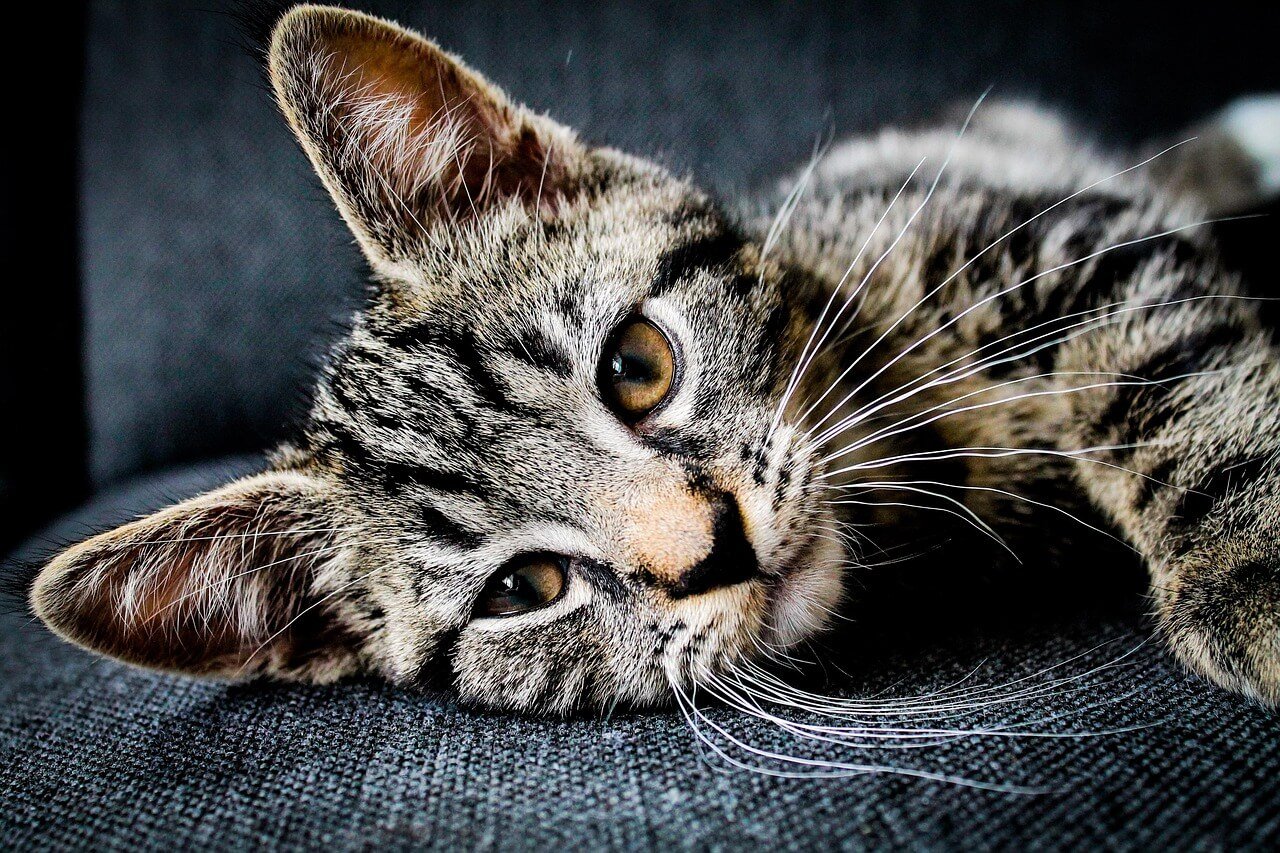Can Cats Get Rabies from Mice?
Cats are natural hunters, and many find joy in chasing and catching small prey like mice. While this behavior is instinctual, it raises important questions about potential health risks, particularly the transmission of diseases such as rabies. Rabies is a serious and often fatal viral disease that affects mammals, including cats, but can they contract it from mice? Understanding how rabies spreads, the role of rodents in its transmission, and preventive measures is crucial for keeping your feline friend safe. In this blog post, we’ll explore everything you need to know about cats, mice, and rabies to ensure your pet remains healthy and protected.
How Rabies Spreads: Can Mice Transmit It to Cats?
To determine whether cats can get rabies from mice, it’s essential to understand how the virus spreads and the role rodents play in its transmission. Here’s what you need to know about the connection between rabies, mice, and cats.
Rabies Transmission Through Saliva:
Rabies is typically transmitted through the saliva of an infected animal, usually via bites or scratches. For a mouse to transmit rabies, it must first be infected itself.Low Risk from Rodents:
Small rodents like mice, rats, and squirrels are rarely carriers of rabies. They are not biologically suited to harbor the virus for long periods.Infected Mice Are Unlikely Hunters:
If a mouse were infected with rabies, it would likely exhibit severe symptoms and die quickly, making it less likely to interact with your cat.Cats Are More Likely to Contract Rabies from Other Animals:
Stray dogs, raccoons, skunks, and bats are far more common sources of rabies transmission than mice or other small rodents.The Role of Vaccination:
Even if a cat encounters an infected animal, up-to-date rabies vaccinations provide strong protection against the virus.
While the risk of cats contracting rabies from mice is extremely low, understanding these factors helps clarify the situation and emphasizes the importance of preventive care.
Other Dangers of Cats Eating Mice
Although the risk of rabies from mice is minimal, allowing your cat to hunt and eat mice can pose other health risks. These dangers highlight the importance of monitoring your cat’s hunting habits.
Parasites Like Roundworms and Tapeworms:
Mice can carry intestinal parasites that may infect your cat if ingested, leading to digestive issues and discomfort.Bacterial Infections:
Consuming mice can expose cats to harmful bacteria such as Salmonella or Toxoplasma, which can cause illness.Secondary Poisoning Risks:
If mice have ingested rodenticides or other poisons, your cat could suffer secondary poisoning by eating them.Choking Hazards:
Small bones or fur from mice can pose choking risks or cause blockages in your cat’s digestive tract.Behavioral Concerns:
Encouraging hunting behavior might lead to increased aggression or destructive tendencies indoors.
These risks underscore the importance of discouraging your cat from eating mice, even if rabies isn’t a significant concern.
Check this guide 👉Rabies Symptoms in Cats: Best 7 Expert Tips!
Check this guide 👉How Much Are Cat Vaccines? Best 7 Health Tips!
Check this guide 👉Why Is My Cat Tired After Vaccines? Best 7 Expert Tips!

Preventive Measures for Cat Owners | Signs Your Cat May Be Sick After Eating Mice |
|---|---|
Keep your cat indoors | Lethargy or unusual fatigue |
Schedule regular vet check-ups | Vomiting or diarrhea |
Ensure up-to-date rabies vaccinations | Loss of appetite |
Use parasite prevention treatments | Excessive grooming or scratching |
Monitor outdoor activities closely | Swollen abdomen or constipation |
How to Prevent Your Cat from Hunting Mice
If you’re concerned about your cat’s exposure to mice and the associated risks, there are several ways to discourage hunting behavior. These strategies can help keep your cat—and your home—safe.
Keep Your Cat Indoors:
Indoor cats are less likely to encounter mice and other wildlife, reducing their risk of exposure to diseases or parasites.Provide Mental Stimulation:
Engage your cat with toys, puzzles, and interactive play to redirect their hunting instincts in a safer way.Use Deterrents for Mice:
Natural deterrents like peppermint oil or ultrasonic devices can help keep mice away from your home without harming your cat.Feed a Balanced Diet:
A well-fed cat is less motivated to hunt for food, so ensure your cat receives adequate nutrition daily.Train Your Cat:
Positive reinforcement techniques can teach your cat to avoid certain behaviors, such as chasing or eating mice.
By implementing these strategies, you can minimize the chances of your cat coming into contact with mice and reduce associated risks.
What to Do If Your Cat Eats a Mouse
If your cat manages to catch and eat a mouse, it’s important to act promptly to assess any potential risks and seek veterinary advice if necessary.
Observe Your Cat Closely:
Watch for changes in behavior, appetite, or energy levels over the next few days.Check for Immediate Symptoms:
Look for signs of choking, vomiting, or distress immediately after ingestion.Contact Your Veterinarian:
Inform your vet about the incident, especially if your cat isn’t fully vaccinated or shows concerning symptoms.Administer Preventive Treatments:
Depending on your vet’s recommendation, consider deworming or bacterial infection treatments as a precaution.Reinforce Safety Measures:
Take steps to prevent future incidents by addressing gaps in supervision or environmental hazards.
Prompt action and communication with your vet can help mitigate risks and ensure your cat stays healthy after consuming a mouse.
Signs Your Home May Have a Mouse Problem
If you suspect mice in your home, it’s important to address the issue promptly to protect your cat and family. Here are some indicators of a mouse infestation.
Droppings or Urine Trails:
Small pellets or stains near food sources or hidden areas signal mice activity.Gnaw Marks on Furniture or Wiring:
Mice chew on various materials to sharpen their teeth, leaving visible damage behind.Scratching Noises at Night:
Mice are nocturnal, so hearing scurrying sounds in walls or ceilings is a red flag.Unexplained Pet Behavior:
Cats may become more alert or fixated on certain areas if they sense mice nearby.Strong Musty Odor:
A persistent musky smell indicates the presence of mice or their nests.
Identifying these signs early allows you to take action before the problem worsens.
Safe Ways to Control Mice Around Your Home
If you discover mice in your home, it’s important to use safe methods to remove them without harming your cat. Here are some effective, pet-friendly solutions.
Use Humane Traps:
Live traps capture mice without killing them, allowing you to release them far from your home.Seal Entry Points:
Block cracks, gaps, and holes in walls, doors, and windows to prevent mice from entering.Eliminate Food Sources:
Store food in sealed containers and clean up crumbs or spills to make your home less appealing to rodents.Natural Repellents:
Essential oils like peppermint or cloves deter mice without posing risks to pets.Consult Pest Control Professionals:
If the infestation is severe, hire experts who specialize in pet-safe pest removal methods.
These strategies help maintain a safe and hygienic environment for both your cat and your family.
Understanding Your Cat’s Hunting Instincts
Hunting is a deeply ingrained behavior in cats, shaped by thousands of years of evolution. Understanding why they hunt can help you manage their interactions with mice safely.
Survival Instinct:
Cats are natural predators, and hunting satisfies their instinctual drive to catch prey.Playful Behavior:
For domestic cats, hunting often mimics play, providing mental and physical stimulation.Territorial Marking:
Catching prey allows cats to assert dominance over their territory, reinforcing their confidence.Curiosity and Exploration:
Cats are naturally curious and use hunting as a way to investigate their surroundings.Energy Release:
Hunting provides an outlet for excess energy, especially in young or active cats.
By recognizing these instincts, you can channel your cat’s energy into safer activities while respecting their natural behaviors.
Frequently Asked Questions About Cats, Mice, and Rabies
Can indoor cats get rabies?
While rare, indoor cats can still contract rabies if exposed to infected animals that enter the home. Vaccination is key to prevention.
Do mice carry rabies?
Mice rarely carry rabies due to their biology and short lifespan when infected. However, other animals like raccoons and bats are common carriers.
What should I do if my cat catches a bat?
Contact your vet immediately, as bats are known carriers of rabies. Avoid handling the bat yourself.
Are rabies vaccines mandatory for cats?
Yes, rabies vaccines are required by law in many regions to protect pets and public health.
How can I tell if my cat has rabies?
Symptoms include aggression, excessive drooling, difficulty swallowing, and behavioral changes. Seek immediate veterinary care if suspected.
Protecting Your Cat from Rabies and Other Risks
While the likelihood of cats getting rabies from mice is incredibly low, it’s essential to remain proactive about your cat’s health and safety. By understanding how rabies spreads, discouraging hunting behavior, and staying vigilant about preventive care, you can ensure your feline companion leads a happy, healthy life. Remember, regular veterinary check-ups, vaccinations, and a safe environment are your best tools for protecting your cat from diseases and other dangers. With the right precautions, you can enjoy peace of mind knowing your furry friend is well cared for.
Canned Pumpkin for Cat Diarrhea: Best 7 Expert Tips! Natural remedy to firm stools, soothe upset bellies, and support gut health safely.
Can a Cat Give You Scabies? Best 7 Expert Tips! Discover the truth about feline mites, human skin risks, and how to protect yourself—without panic.
Cat Flea vs Human Flea: Best 7 Expert Tips! Discover the truth about bites, species, and how to eliminate infestations for good.
Weird Cat Behaviors: Best 7 Expert Tips! Discover why cats do strange things—and how to understand, not punish, their instincts for a happier home.





